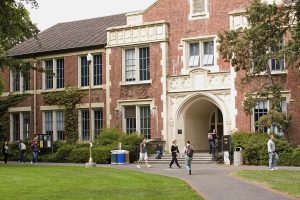The Supreme Court has decided not to take on a case that challenged the way universities respond to bias incidents on campus. The case, Uzuegbunam v. Preczewski, involved a former student at Georgia Gwinnett College who sued the school for violating his First Amendment rights after they punished him for distributing religious literature on campus.
In its decision to not hear the case, the Supreme Court declined to address the broader issue of how universities should respond to bias incidents on campus. The court’s decision comes at a time when colleges and universities across the country are grappling with how to address bias and discrimination in their communities.
The case began in 2016 when Chike Uzuegbunam, a student at Georgia Gwinnett College, was handing out religious literature on campus. College officials told him he needed to request a permit to engage in expressive activity on campus, and he complied. However, when Uzuegbunam continued to distribute the literature without a permit, he was charged with violating the college’s speech policies.
Uzuegbunam sued the school, claiming that his First Amendment rights had been violated. The case made its way through the lower courts, and in 2020, the Supreme Court agreed to hear the case. However, after the college changed its policies and dropped the charges against Uzuegbunam, the court decided the case was moot and declined to rule on the constitutional issue.
The decision not to hear the case has left some legal experts disappointed. They argue that the issue of how universities respond to bias incidents on campus is an important one that deserves the court’s attention. However, others see the decision as a missed opportunity for the court to clarify the boundaries of free speech on college campuses.
Regardless of the court’s decision, the issue of bias response on college campuses is likely to continue to be a topic of debate. Universities are under increasing pressure to address bias and discrimination within their communities, and the legal landscape surrounding these issues is still evolving.
In the absence of a Supreme Court ruling, colleges and universities will need to continue to develop and refine their policies for responding to bias incidents on campus. It is a challenging and complex issue, but one that is critical to creating a safe and inclusive environment for all students.


